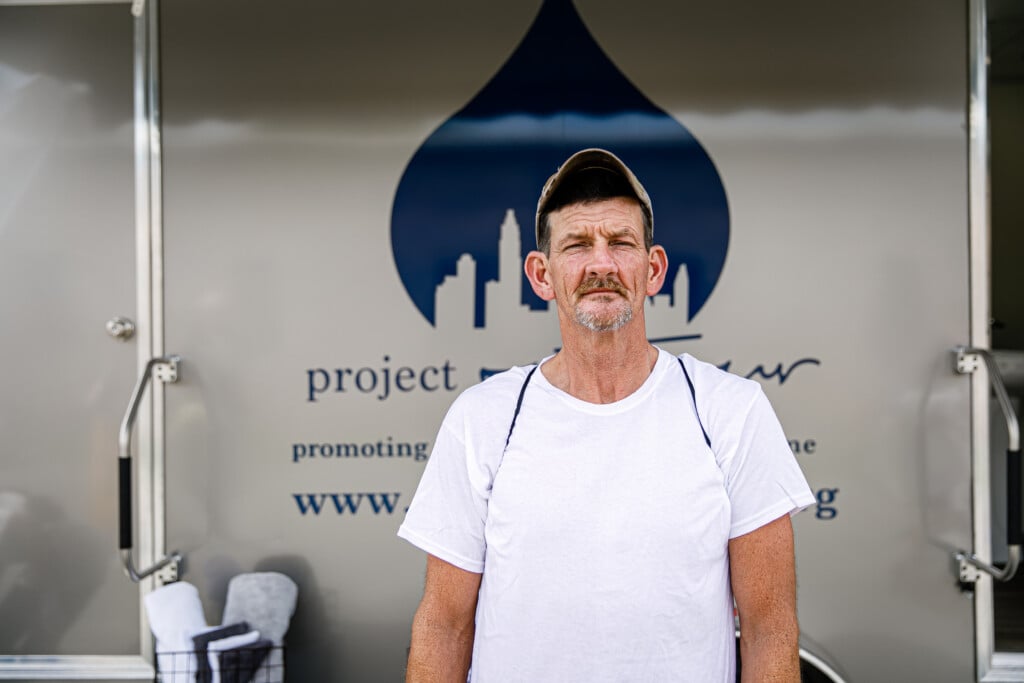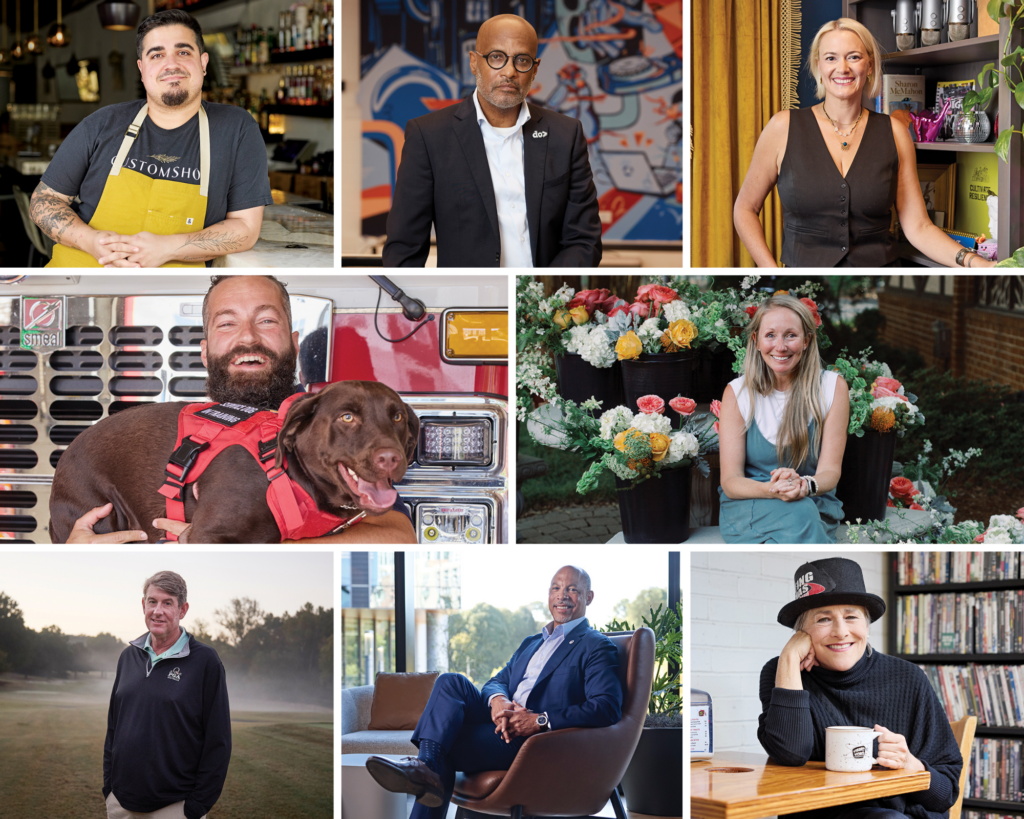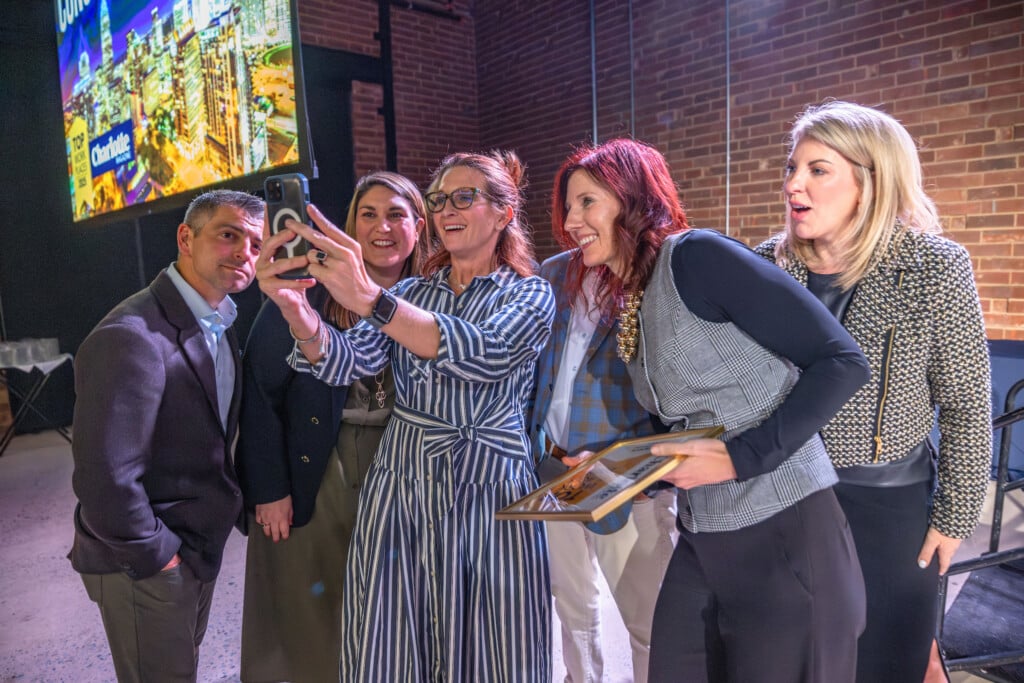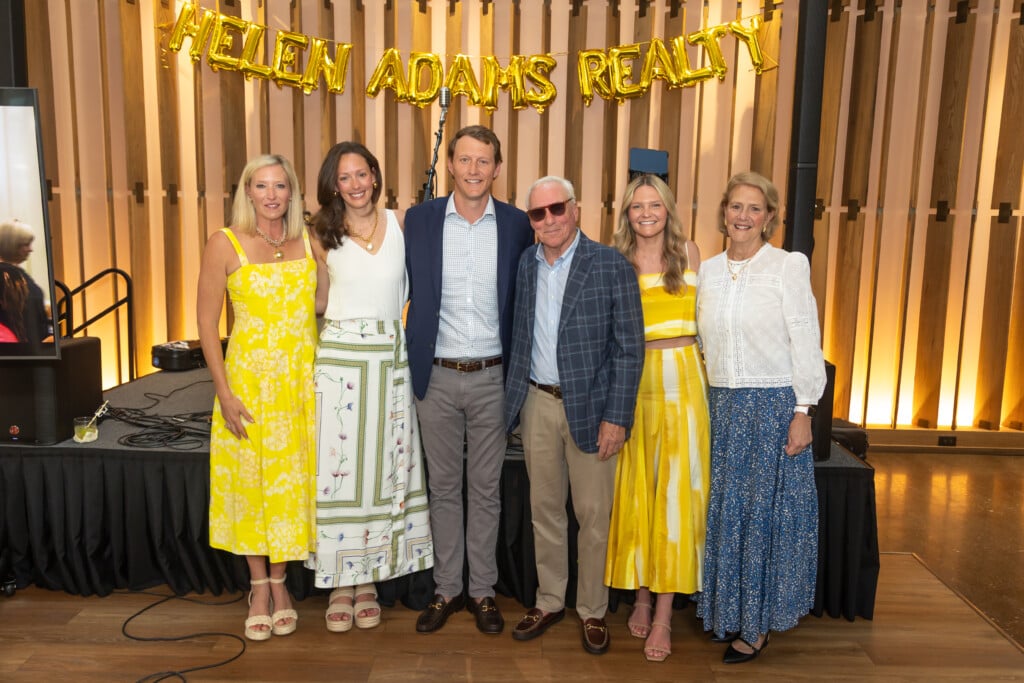When A Hot Shower Is A Gift Worth Waiting In Line For
At Project Outpour, support begins with a shower and flows from there

Charlotte has plenty of long lines awaiting openings, but the line I see today isn’t for a hot, new restaurant. It’s for something simpler: a hot shower.
Each week, nonprofit Project Outpour brings a shower trailer into five communities with large unhoused populations. The trailer contains two temperature-controlled bathrooms, each with a shower, toilet, and sink. On this August morning, the wait list is already 14 names long at 10:15 a.m., even as the team still sets up its regular Tuesday location outside First Christian Church in Dilworth. MaShonna Hughes, the group’s chief dignity officer, begins early to give more people a turn.
Before each guest gets 20 minutes inside, they can choose from new underwear, T-shirts, deodorants, soaps, and toiletries. Project Outpour’s team washes the bathrooms between showers so each guest gets a freshly cleaned space. Today, about 20 people will shower, and about 25 more will pick up hygiene items. Many guests return, week after week, and spread word to others in need.
Imagine how it must feel for someone who lives outside to have a hot shower, change into fresh underclothes, apply lotion, brush their teeth—to have 20 minutes for personal hygiene with the items and privacy they need.
Mecklenburg County has nearly 3,000 unhoused people, and shelters lack space for everyone. Most of Project Outpour’s guests live in tents, cars, or under bridges. This year, however, MaShonna has seen two changes in the people who come in search of a shower. Increasingly, they’re parents who bring children, and they live in homes that lack water. As the costs of rent, groceries, and life in general have spiked, even some who have roofs can’t take showers.
The importance of these showers can’t be overstated. For one, they’re a health need. They reduce the risk of diseases, infections, and infestations of lice or fleas. These showers are also an employment need. Many of Project Outpour’s guests have jobs or seek them, and they want to arrive to work and interviews clean and well-prepared. Others want to shower before doctor’s appointments or to get their kids clean for school. Equally important is a shower’s effect on well-being and self-worth.
“Dignity is a big part of our mission,” MaShonna says. “People presume it ends with a shower, but the reality is, that’s just the beginning.”
MaShonna welcomes most guests by name, following up on earlier conversations and asking how she might help. Recently, she connected one guest with a staffing agency; the woman returned the next week to celebrate her new job. She’s connected other guests with housing and health care. Today, a regular guest mentioned he couldn’t make the church’s soup kitchen in time; MaShonna offered to set a plate aside for him. These guests know her. They trust her. And MaShonna connects them with other resources they can trust, too.
The Project Outpour team is small: just MaShonna, three part-time employees, and volunteers. Volunteer Jane Haynes has helped the group each week since it began in 2021.
“I love a hot shower,” Jane says. “It’s one of God’s good gifts.”
This work has shown Jane not only the extent of need nearby but also the generosity of support. The parking lot around Project Outpour’s showers becomes its own community. Some afternoons, barber Mendeecees Foy sets up a chair and offers free haircuts. Sometimes, the county Health Department offers bottles of cold water and health screenings. Today, the church offers free lunch; volunteers sometimes set up grills for a barbecue. Neighbors drop off travel-sized toiletries, which the group gratefully accepts. People without housing can feel isolated; here, Project Outpour creates connections between people who need help and those who want to give it.
Project Outpour chooses locations at churches and libraries that are close to bus lines, soup kitchens, and community services. MaShonna says most people don’t understand how much effort daily tasks require for someone without housing: waits for buses, walks to appointments and jobs, trips for food and supplies. What would be a quick errand for someone with a car and a home is a feat of logistics for someone with neither—even for their most basic needs.
“The feedback I hear most often from our guests is, ‘Man, I feel really good,’” MaShonna says. “Knowing that people come out of those showers feeling a little less heavy, feeling a little less weight on their shoulders? That’s at least one barrier that has been eliminated from their day.”






